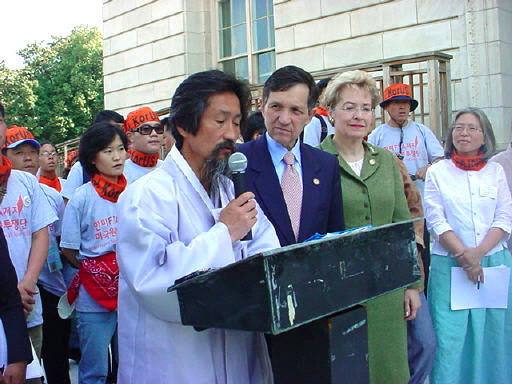 |
Seoul agreed to offer compensation when it expropriates investors’ properties and also decided to acknowledge speculation funds and intellectual property rights as investments. The Korean government also agreed to a set dispute-solving process between investors and the concerned nation. In consequence, U.S. enterprises won’t have to employ Korean workers against their will and will be exempted from using a certain quantity of Korean-made components for their products. Unlike domestic companies, the American firms will be able to demand compensation against Seoul when they anticipate subjective and uncertain profits, as well as when their properties are confiscated by the Korean government. Seoul is demanding Washington take special measures to limit sending money overseas, in case of another Asian financial crisis happens again, but it is unclear if the U.S. will accept this. Seoul officials said they are considering changing the taxation system on automobiles. Currently, the tax is levied based on measuring engine displacement, but the government wants to impose taxes in accordance with the price or fuel efficiency of the vehicles. This represents a compromise on the part of Seoul, as the U.S. has asserted that the tax system based on engine displacement should be abolished. Meanwhile, Wendy Cutler, the chief negotiator of the U.S. side, participated in the first meeting of pharmaceutical working groups on June 8 and pressured Korean negotiators to change their system of drug registration. If U.S. demands are satisfied, they may harm the domestic drug industry by raising drug prices and hurting the finances of the national health insurance system. In relation to the agricultural market, Seoul plans to include both a safeguard and a tariff quota, but the two sides show a serious divergence of views about both issues. On the problem of the safeguard, which would protect its domestic industries in the case that imports increase rapidly, the U.S. refuses it strongly. About the tariff quota, Seoul claimed it would not harm bilateral trade, but Washington insisting that its application should be strictly limited. U.S. negotiators emphasized a necessity to ease Korean standards in connection with quarantine for animals and plants, and demanded the establishment of a standing organization to discuss the problem, but their Korean counterparts refused, saying that an existing non-standing team can tackle this. Regarding telecommunications, the U.S. strongly insisted that Korea allow companies to select their focus technologies freely. Washington was most likely referring to Samsung Electronics’ monopolization of the market.





